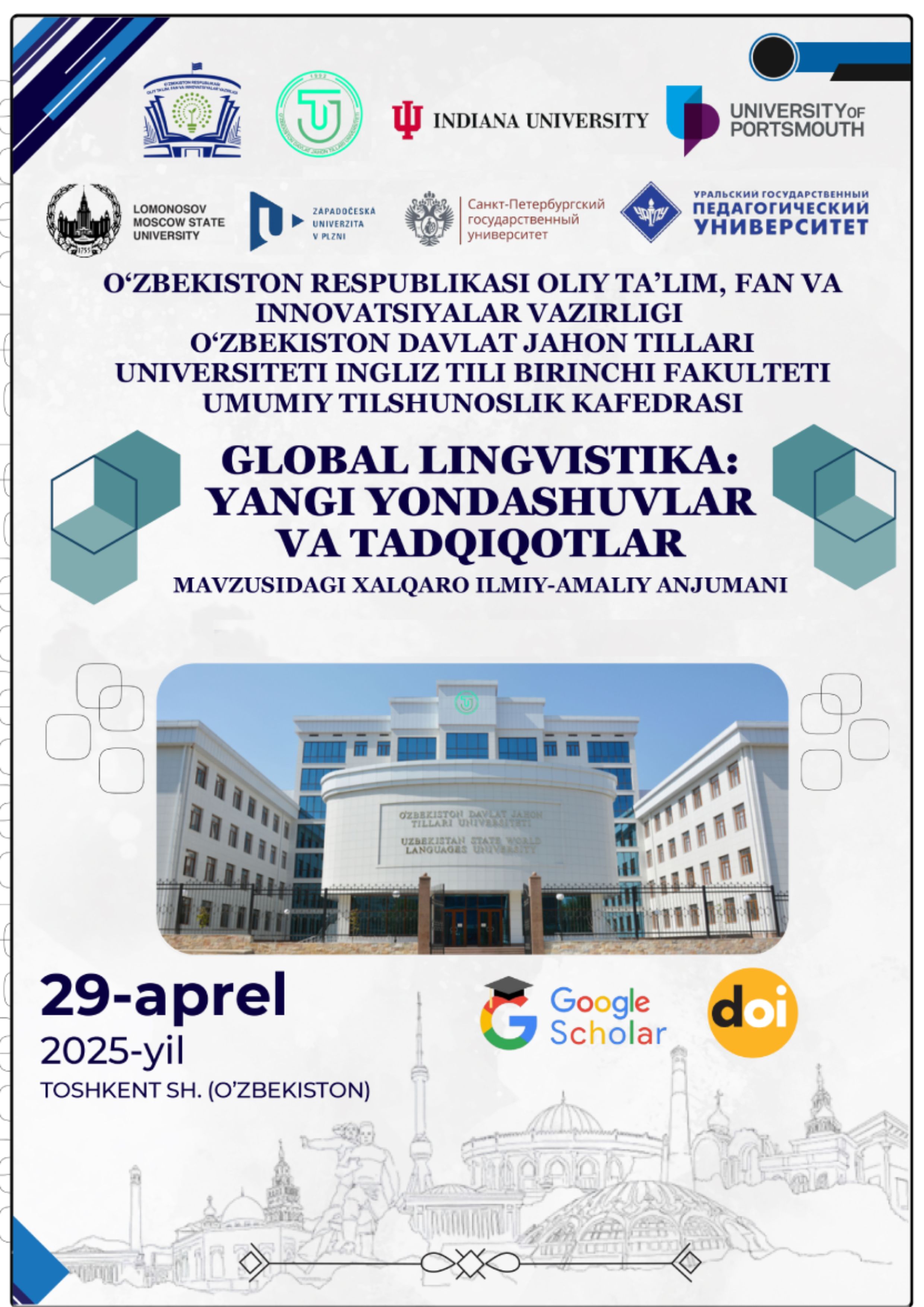WAYS AND METHODS OF OVERCOMING LEXICAL DIFFICULTIES
https://doi.org/10.5281/zenodo.15434662
Kalit so‘zlar
lexical difficulties, foreign language, learning strategies, contextual learning, communicative approach, mnemonic techniques, game-based methods, semantic analysis, pedagogical methods, linguistic approachAnnotasiya
This article explores effective ways and methods for overcoming lexical difficulties encountered in the process of learning a foreign language. Lexical difficulties are among the most significant challenges that hinder learners from expanding their vocabulary and communicating fluently. This study aims to identify key lexical issues and analyze their linguistic and pedagogical aspects. Additionally, it examines effective strategies for foreign language learners, including contextual learning, semantic analysis, visual and auditory methods, game-based techniques, mnemonic strategies, and communicative approaches. The research findings indicate that implementing an integrated approach to overcoming lexical difficulties significantly enhances learners' ability to expand their vocabulary and acquire new lexical units independently.
Foydalanilgan adabiyotlar ro‘yhati
Atkinson, R. C., & Raugh, M. R. (1975). An application of the mnemonic keyword method to the acquisition of a Russian vocabulary, (34-67).
Ellis, R. (2005). Principles of Instructed Language Learning, 23-39.
Godwin-Jones, R. (2018). Emerging technologies for language learning.
Laufer, B. (1997). The lexical plight in second language reading.
Meara, P. (2002). Vocabulary acquisition in a second language.
Nation, P. (2001). Learning Vocabulary in Another Language.
Schmitt, N. (2010). Researching Vocabulary: A Vocabulary Research Manual, 103-112.
Thornbury, S. (2002). How to Teach Vocabulary.
Waring, R. (2004). The Involvement Load Hypothesis in Vocabulary Learning.
Zimmerman, C. B. (2009). Word Knowledge and Language Learning.

